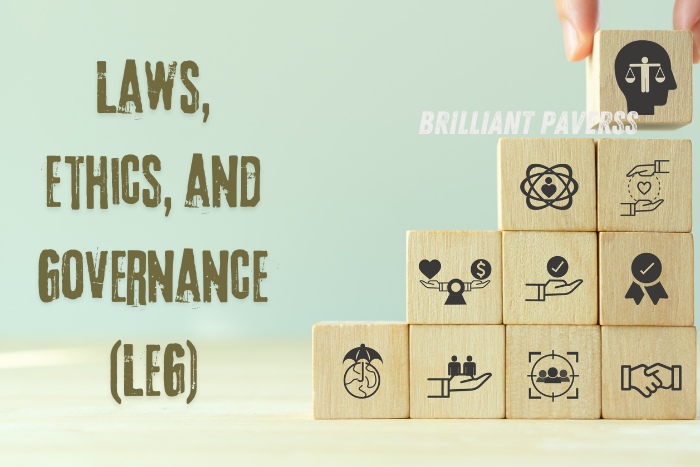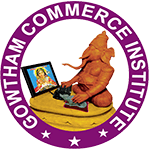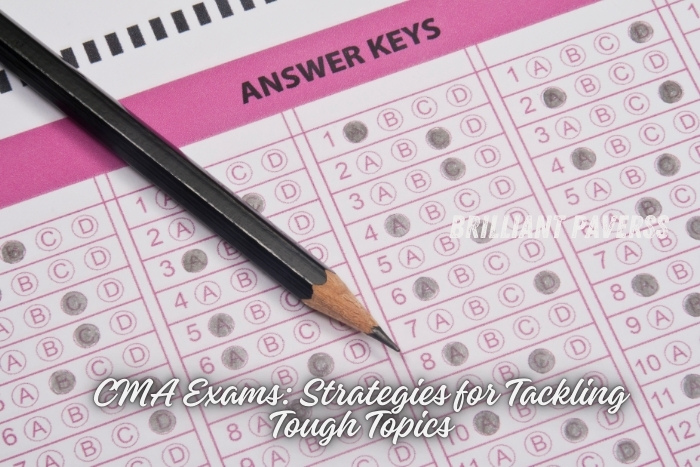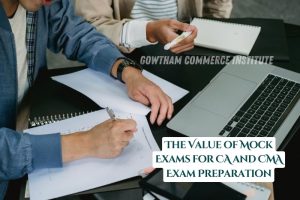Future CMAs, hello! 🌼 It can be difficult to prepare for the CMA examinations, particularly when it comes to covering the more difficult material in the syllabus. We at Gowtham Commerce Institute, in Peelamedu, Coimbatore, are aware of the difficulties you encounter and are prepared to assist you. With the help of this guide, you will learn practical techniques to master challenging subjects and achieve test success. Now let’s get started!
Understanding the CMA Syllabus
The CMA course is divided into two groups, each consisting of four papers. Here’s a brief overview:
Group I
- Financial Accounting (FA)
- Laws, Ethics, and Governance (LEG)
- Cost Accounting and Financial Management (CAFM)
- Taxation (TX)
Group II
- Advanced Accounting (AA)
- Auditing and Assurance (A&A)
- Management Information Systems and Strategic Management (MIS & SM)
- Financial Management and Economics for Finance (FM & EFF)
Each of these subjects comes with its own set of challenges. Here’s how you can tackle the tough topics within these papers.
Financial Accounting (FA)
Key Challenges
- Being aware of intricate accounting requirements.
- Consolidated financial statement preparation.
- Handling transactions that are not routine.
Strategies
- Master the Fundamentals: Before moving on to more complex subjects, be sure you have a firm grasp of the fundamentals of accounting.
- Make Use of Visual Aids: Flowcharts and diagrams may be used to assist explain difficult ideas.
- Practice Frequently: Work through a lot of issues to become comfortable answering various kinds of questions.
- Group Studies: Get fresh perspectives by debating difficult subjects with others.

Laws, Ethics, and Governance (LEG)
Key Challenges
- Committing lengthy legal provisions to memory.
- Applying moral precepts to actual situations.
- Recognizing the structures of corporate governance.
Strategies
- Create Summaries: Summarize legal provisions into concise notes for easy revision.
- Case Studies: Study past cases to understand the application of laws and ethics.
- Use Mnemonics: Develop mnemonic devices to remember key legal sections.
- Regular Revision: Schedule regular revision sessions to reinforce your memory.
Cost Accounting and Financial Management (CAFM)
Key Challenges
- Being aware of the behavior and analysis of costs.
- Gaining expertise in money management strategies.
- Creating predictions and budgets.
Strategies
- Break Down Concepts: Divide complex topics into smaller, manageable parts.
- Real-World Applications: Relate theoretical concepts to practical scenarios to enhance understanding.
- Regular Practice: Solve a variety of problems to become proficient in different methods.
- Study Groups: Collaborate with peers to discuss and solve challenging problems.
Taxation (TX)
Key Challenges
- Keeping up with frequent changes in tax laws.
- Understanding various tax implications for different entities.
- Accurately calculating taxes.
Strategies
- Stay Updated: Regularly review updates and amendments in tax laws.
- Practice Calculations: Perform tax calculations frequently to ensure accuracy.
- Use Reference Books: Refer to multiple sources for a comprehensive understanding.
- Mock Tests: Take mock tests to simulate exam conditions and improve time management.
Advanced Accounting (AA)
Key Challenges
- Dealing with complex financial instruments.
- Preparing consolidated financial statements.
- Understanding international accounting standards.
Strategies
- Conceptual Clarity: Focus on understanding the concepts rather than rote learning.
- Practice Problems: Solve a wide range of problems to cover all possible scenarios.
- Interactive Learning: Participate in discussions and study groups to gain different perspectives.
- Use Visual Aids: Flowcharts and diagrams can simplify the understanding of complex topics.
Auditing and Assurance (A&A)
Key Challenges
- Understanding various auditing standards and procedures.
- Conducting audit planning and risk assessment.
- Preparing audit reports.
Strategies
- Study Standards Thoroughly: Make sure to have a deep understanding of auditing standards.
- Practical Application: Apply theoretical knowledge through case studies and practical examples.
- Regular Revision: Consistently revise key concepts and standards.
- Mock Audits: Conduct mock audits to practice and apply your knowledge.
Management Information Systems and Strategic Management (MIS & SM)
Key Challenges
- Understanding the technical aspects of information systems.
- Formulating and implementing strategic plans.
- Analyzing business processes and systems.
Strategies
- Interactive Sessions: Engage in interactive sessions to better understand technical concepts.
- Case Studies: Analyze real-world cases to understand strategic management principles.
- Group Discussions: Participate in group discussions to broaden your perspective.
- Regular Revision: Keep revisiting key concepts and terms to stay updated.
Financial Management and Economics for Finance (FM & EFF)
Key Challenges
- Mastering financial management techniques.
- Understanding economic theories and their applications.
- Performing complex financial calculations.
Strategies
- Focus on Fundamentals: Build a strong foundation in basic financial management principles.
- Regular Practice: Solve financial problems regularly to enhance your calculation skills.
- Stay Updated: Keep up with the latest economic trends and policies.
- Use Multiple Resources: Refer to different books and online resources for a comprehensive understanding.

General Strategies for Tackling Tough Topics
1. Create a Study Plan
Why It Works: A structured study plan ensures you cover all topics systematically and allocate sufficient time to each subject.
How to Do It:
- Set Clear Goals: Define what you want to achieve each week.
- Break Down Syllabus: Divide the syllabus into manageable sections.
- Allocate Time Wisely: Prioritize tougher topics and allocate more time to them.
- Include Breaks: Schedule regular breaks to avoid burnout.
2. Use Multiple Learning Resources
Why It Works: Different resources can provide varied explanations, making it easier to understand complex topics.
How to Do It:
- Textbooks: Use prescribed textbooks for detailed explanations.
- Online Courses: Enroll in online courses for additional support.
- Study Groups: Collaborate with peers to share resources and insights.
3. Regular Revision
Why It Works: Regular revision helps reinforce your memory and ensures you retain key concepts.
How to Do It:
- Weekly Reviews: Set aside time each week to review what you’ve studied.
- Create Summary Notes: Summarize important points and formulas for quick revision.
- Use Flashcards: Flashcards can help memorize key terms and concepts.
4. Practice Mock Tests
Why It Works: Mock tests simulate the exam environment, helping you manage time and improve your problem-solving skills.
How to Do It:
- Timed Tests: Take timed tests to practice working under exam conditions.
- Analyze Performance: Review your performance to identify strengths and weaknesses.
- Focus on Improvement: Allocate extra time to areas where you need improvement.
5. Seek Guidance
Why It Works: Expert guidance can provide clarity on difficult topics and help you overcome challenges.
How to Do It:
- Join Coaching Classes: Enroll in classes at Gowtham Commerce Institute for personalized coaching.
- Consult Teachers: Don’t hesitate to ask your teachers for help.
- Online Forums: Participate in online forums to get help from peers and experts.

Why Choose Gowtham Commerce Institute?
At Gowtham Commerce Institute, located in Peelamedu, Coimbatore, we offer comprehensive coaching for CMA exams. Here’s why we stand out:
Experienced Faculty
Our faculty members are seasoned professionals with years of experience in teaching CMA subjects. They provide practical insights and personalized attention to help you understand complex topics.
Comprehensive Study Materials
We provide up-to-date study materials that cover the entire syllabus in depth. Our materials include numerous practice questions and past papers to help you prepare effectively.
Interactive Learning Environment
Our interactive classes encourage student participation and active learning. We use case studies, group discussions, and problem-solving exercises to make learning engaging and effective.
Flexible Learning Options
We offer both online and offline classes to suit your convenience. Our flexible timings ensure you can balance your studies with other commitments.
Proven Track Record
Our students consistently achieve high pass rates in CMA exams. Many of our alumni have gone on to excel in their professional careers, crediting our institute for their strong foundation.
Conclusion
Tackling tough topics in the CMA exams requires a strategic approach and the right support. At Gowtham Commerce Institute in Peelamedu, Coimbatore, we are dedicated to providing you with the best resources, guidance, and learning environment to help you succeed. Follow the strategies outlined in this guide, stay focused, and you’ll be well on your way to acing your CMA exams.





